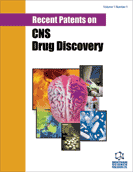Abstract
The advent of adult neurogenesis and neural stem cell (NSC) research opens new avenues and opportunities for treating neurological diseases and disorders, particularly for the discovery and development of novel drugs. Adult neurogenesis is modulated by a broad range of stimuli, physio- and pathological processes, trophic factors/cytokines and drugs, particularly drugs used for treating neurological diseases and disorders. Hence, adult neurogenesis is the target of drugs used for treating neurological diseases and disorders, such as Alzheimers disease and depression, and the activities of neurological drugs may be mediated by adult NSCs. Although the contribution and mechanism of adult neurogenesis and newly generated neuronal cells of the adult brain in the activities of neurological drugs remain to be determined, new research is geared toward discovering and developing novel drugs that target specifically adult neurogenesis and the NSCs of the adult brain. Neurogenic drugs may reverse or compensate deficits and impairments associated with neurological diseases and disorders, particularly those associated with the hippocampus. They may have a potential for regenerative medicine and for the treatment of brain tumors. However, limitations in established models and protocols currently used in the drug discovery and development process of these drugs may hinder their potency and specificity. Here, we reviewed and discussed recent patents on neurogenic drugs and compounds, particularly nootropic agents and apigenin and related compounds.
Keywords: Adult neurogenesis, Alzheimer’s disease, depression, neural stem cells, neurodegenerative disease, pharmacology, regeneration, regenerative medicine, therapy.
 10
10





















